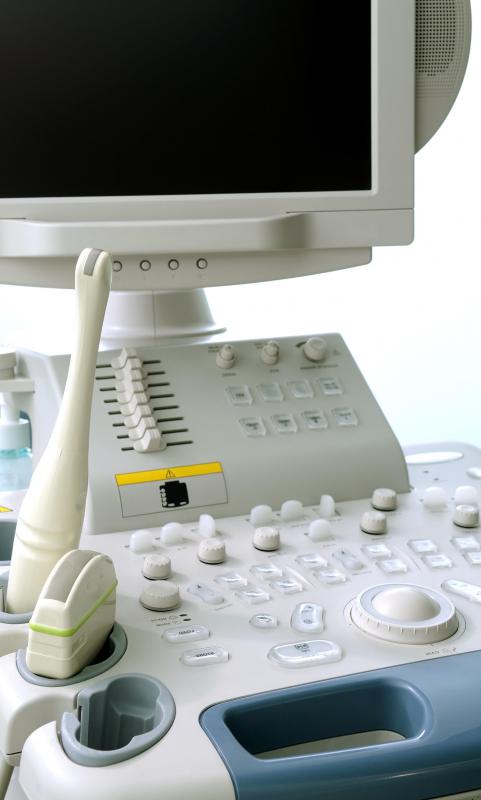At WiseGEEK, we're committed to delivering accurate, trustworthy information. Our expert-authored content is rigorously fact-checked and sourced from credible authorities. Discover how we uphold the highest standards in providing you with reliable knowledge.
What is an Antepartum Hemorrhage?
An antepartum hemorrhage is vaginal bleeding that happens during later pregnancy up to birth. It is commonly caused by difficulties with the placenta's attachment to the uterus that lead to tissue tearing or rupture. Depending on the underlying cause, it can be painless, or accompanied by pain and discomfort. Like similar obstetric complications, antepartum hemorrhage is treated with caution, by performing ultrasound and hospitalization of the mother for observation. Blood transfusions may be applied in cases of prolonged hemorrhage.
Obstetric hemorrhages are a relatively common complication of pregnancy. Antepartum hemorrhages can indicate any vaginal bleeding that occurs later in pregnancy, after the 24th week of gestation. Roughly 30% of maternal mortality in pregnancy is related to antepartum hemorrhage, so for safety an ultrasound examination is given to pregnant women with bleeding during late pregnancy. Hospitalization is important, because if blood pressure drops and bleeding recurs, transfusion is sometimes needed to keep the mother stable. Even moderate bleeding can be lethal to the fetus if untreated.

Placenta praevia is a common cause of antepartum hemorrhage. Like most second and third trimester bleeding, it is more common in women who have had multiple pregnancies and/or cesarian sections. In this condition, the placenta improperly covers the lower segment of the uterus or tears away from it, obstructing the cervix. This leads to vaginal bleeding and impedes the normal path of the fetus to the birth canal, making cesarian section necessary. The goal of medical treatment is to keep the situation stable until 36-37 weeks, when surgical delivery is possible.

Placenta accreta induces vaginal hemorrhage through a complication in which the placenta becomes deeply embedded in the wall of the uterus. Previous conditions of placenta previa and cesarian section increase the risk of placenta accreta, as does cigarette smoking. Removal of the placenta is very difficult and may tear the uterus, causing immediate and rapid hemorrhage. Successful treatment centers on minimizing complications for the mother and fetus by scheduling a cesarean section, which is often accompanied by a hysterectomy.

Premature tearing away of the placenta from the uterus is a rarer cause of antepartum hemorrhage. Sometimes vaginal bleeding happens late in pregnancy from sources other than the uterus or placenta, such as injury to the cervix. During the onset of labor, vaginal bleeding is relatively common. There is no way to directly prevent placenta accreta or placenta praevia, but their risk factors, such as smoking and uterine scarring, can be reduced. Prompt treatment of anemia, hypovolemia, and related complications of hemorrhage greatly reduces the risk of mortality.
AS FEATURED ON:
AS FEATURED ON:
















Discuss this Article
Post your comments